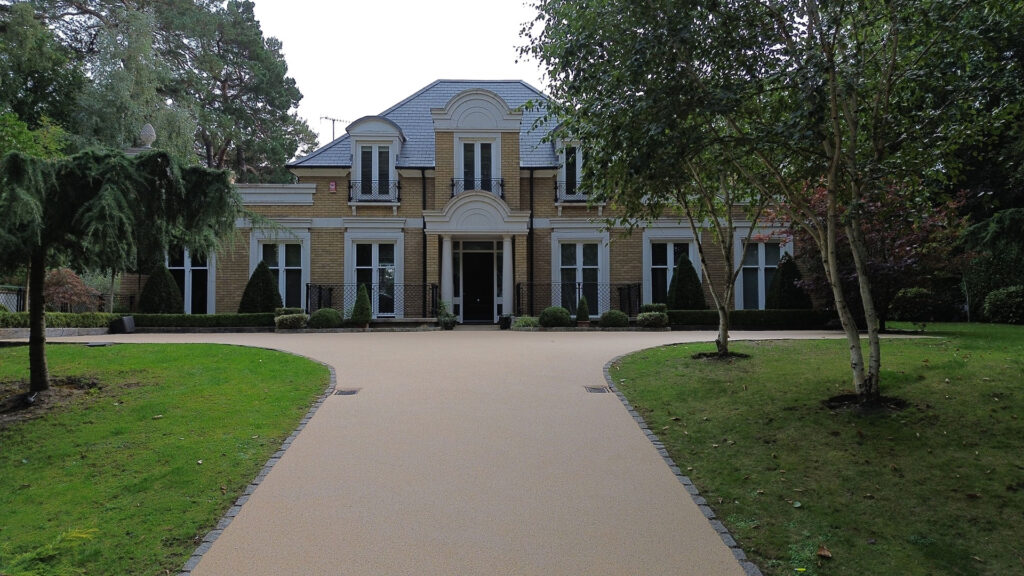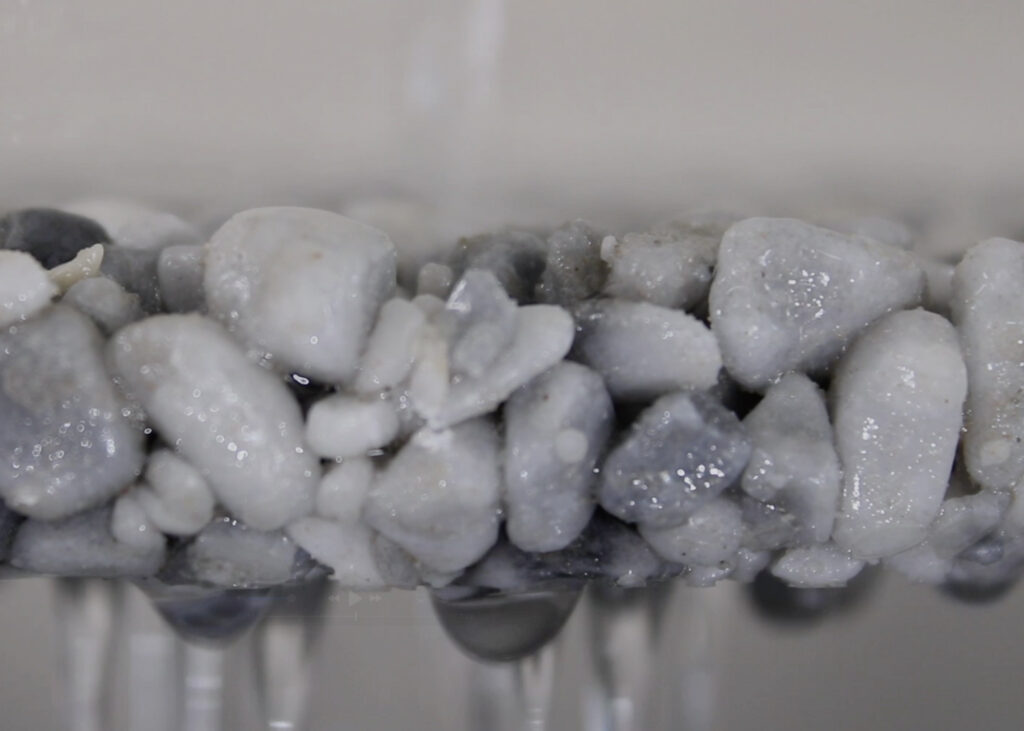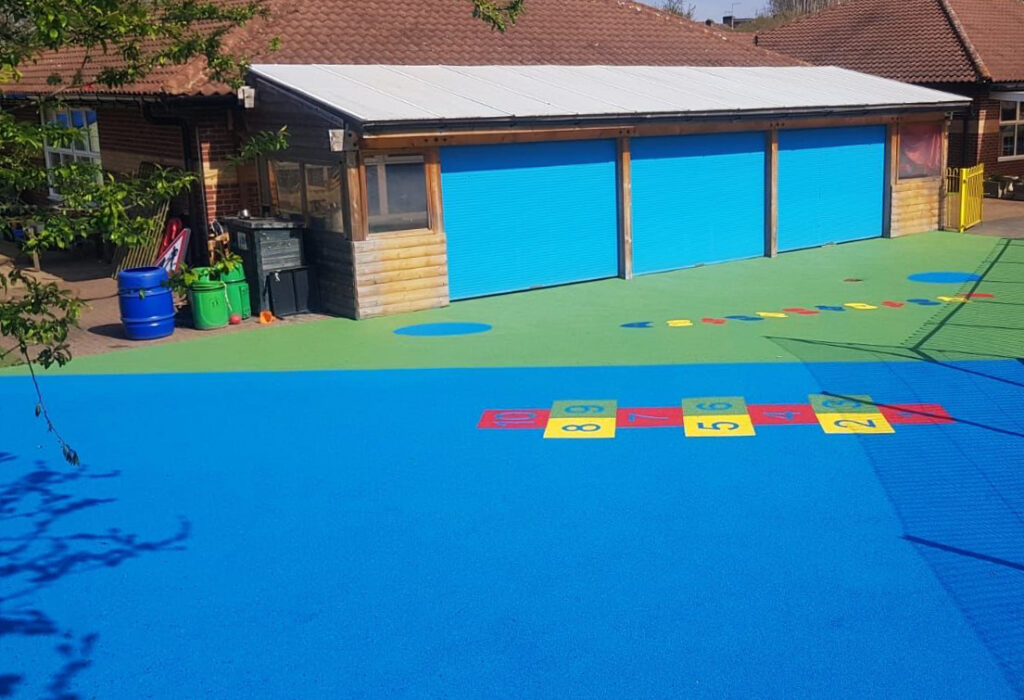Resin Bound Driveways vs Concrete Driveways: Which is Better?
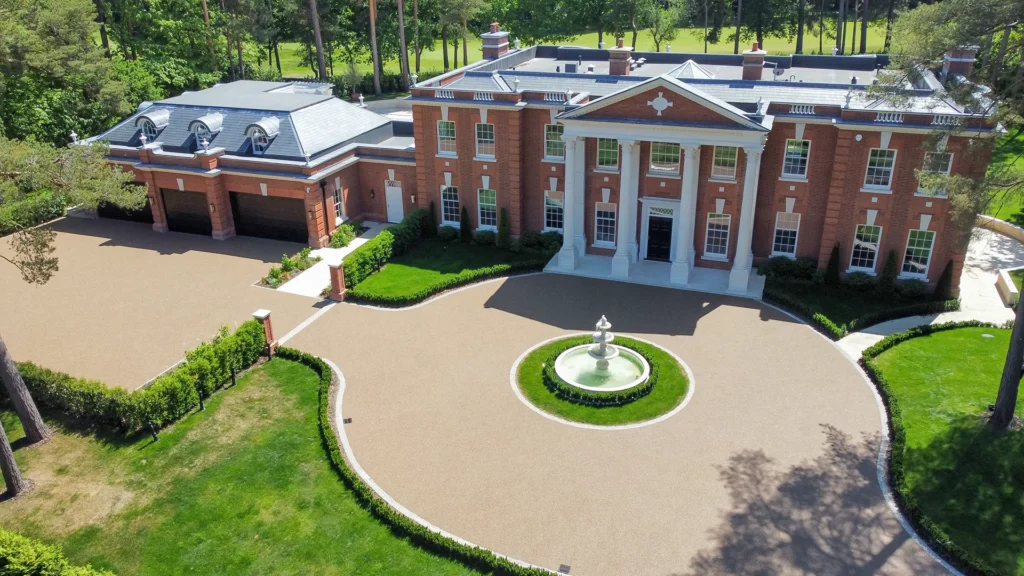
If you’re planning a new driveway, one of the biggest choices you’ll face is what material to use. For years, concrete was the go-to option — tough, affordable, and easy to install. But today, resin bound driveways are quickly becoming the modern alternative, offering a blend of style, durability, and sustainability.
So, how do the two really compare? Let’s break it down.
Drainage and Flooding
- Concrete: Solid concrete is non-permeable, which means rainwater has nowhere to go. The result? Puddles, surface water runoff, and in some cases, extra drainage systems are needed to avoid flooding.
- Resin Bound: Designed to be permeable, resin bound driveways let rainwater flow naturally through the surface and into the ground. This makes them fully SuDS compliant (Sustainable Drainage Systems) — a major plus for flood prevention and eco-friendly landscaping.
Winner: Resin bound – no puddles, no extra drainage, no hassle.
Appearance and Kerb Appeal
- Concrete: Plain concrete can look stark and industrial. It can be coloured or stamped, but options are limited and the finish often fades or cracks over time.
- Resin Bound: With a wide choice of natural stone colours and blends, resin bound surfaces can be tailored to match any home style — from traditional to contemporary. The smooth, seamless finish looks smart and modern, instantly boosting kerb appeal.
Winner: Resin bound – endless design options and long-lasting colour.
Durability and Maintenance
- Concrete: Known for its strength, concrete can take heavy loads, but it comes with issues. Over time it’s prone to cracking, especially with freeze-thaw cycles in the UK. Once cracks appear, weeds and moss can creep in, making it harder to maintain.
- Resin Bound: Flexible enough to handle changes in temperature and ground movement, resin bound surfaces resist cracking. They’re also UV-stable, meaning they won’t fade in the sun. Maintenance is simple — just an occasional sweep and rinse to keep it looking fresh.
Winner: Resin bound – tough, flexible, and low-maintenance.
Cost: Short Term vs Long Term
Concrete: Typically cheaper to install upfront, making it a budget-friendly choice. However, the cost of repairs, resealing, and potential drainage systems can add up over time.
Resin Bound: Installation costs are usually higher than concrete, but the low maintenance and long-lasting performance make it a cost-effective option in the long run.
Winner: Tie – concrete for upfront savings, resin bound for long-term value.
Sustainability
- Concrete: Producing concrete has a high carbon footprint, and its impermeable surface contributes to water runoff problems.
- Resin Bound: Made with natural aggregates and designed for sustainable water management, resin bound driveways are a more eco-friendly choice.
Winner: Resin bound – greener and better for the environment.
Which Should You Choose?
If you’re looking for a quick, budget-friendly solution, concrete still has its place. But if you want a driveway that:
- Looks stylish and modern
- Stays strong without cracking
- Reduces puddles and flooding
- Requires little upkeep
- And supports sustainable living…
Then resin bound surfacing is the smarter choice.
At Ace Resin, we specialise in high-quality resin bound driveways that combine beauty with practicality. Every surface is installed to the highest standards, fully SuDS compliant, and built to last.

Ready to Transform Your Driveway?
Discover the benefits of resin bound surfacing with Ace Resin. Get in touch today for a free, no-obligation quote and let’s create a driveway that enhances your home for years to come.
Frequently Asked Questions
Yes, in most cases. Resin bound driveways are permeable, resistant to cracking, and available in a wide range of finishes. While concrete is cheaper upfront, resin bound surfaces offer better long-term performance and kerb appeal.
With professional installation and basic upkeep, a resin bound driveway can last 20+ years. It stays flexible, resists UV fading, and requires very little maintenance compared to concrete.
No. Unlike rigid concrete, resin bound systems are flexible and move with changes in temperature and ground conditions. This flexibility helps prevent the cracks you often see in concrete driveways.
Yes, resin bound surfaces typically cost more to install than concrete. However, they save money in the long run by avoiding repairs, drainage issues, and resealing costs.
Yes. Resin bound systems are fully permeable, allowing water to drain through naturally. This makes them SuDS compliant (Sustainable Drainage Systems), helping reduce local flooding and standing water.
In many cases, yes — as long as the existing concrete base is stable and in good condition. This can make installation quicker and more cost-effective.
For bases that need extra strength or stability, we recommend using our Ace ResiMesh system. ResiMesh reinforces the surface, reduces the risk of cracking, and ensures your resin bound installation lasts even longer.
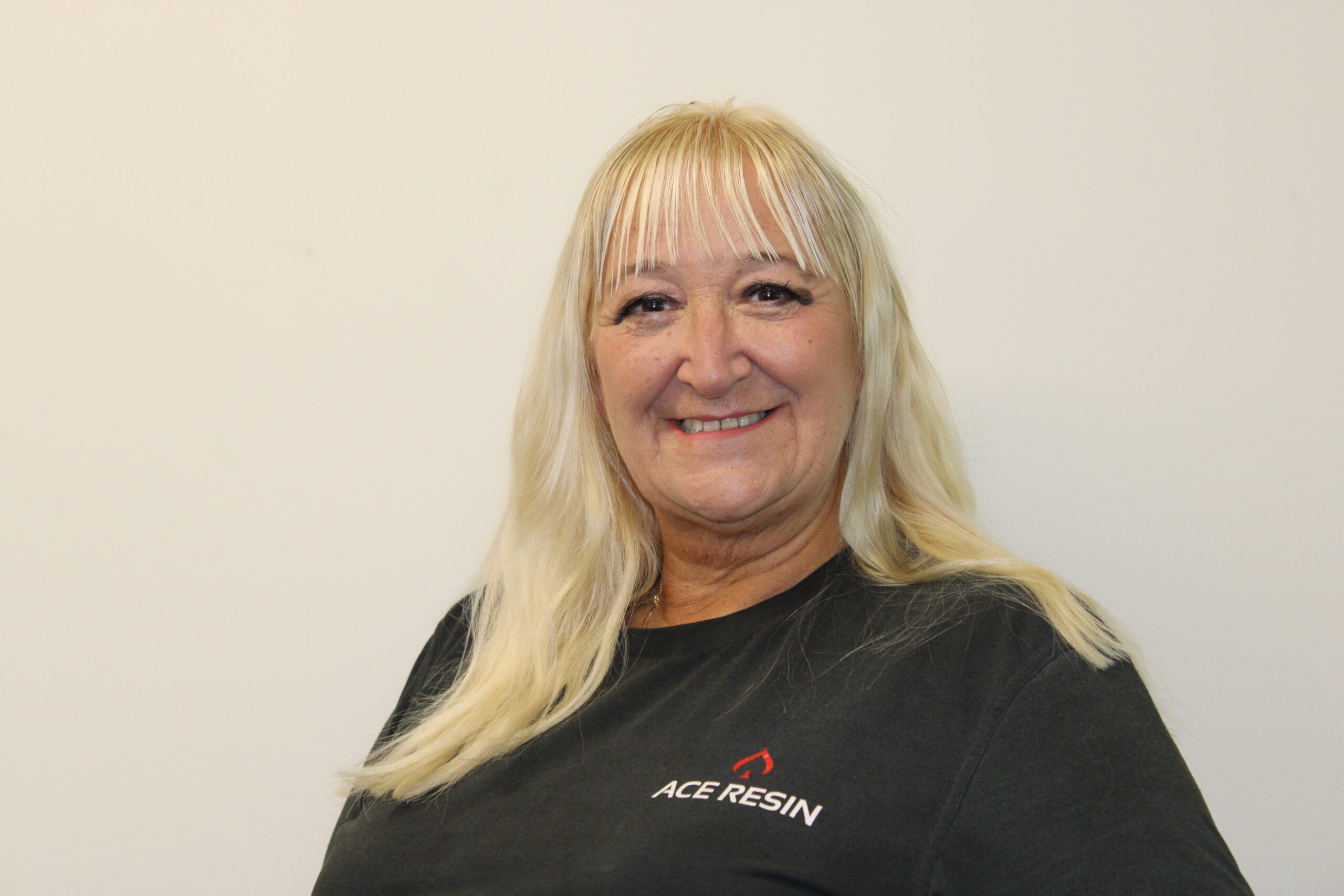
Donna Jones
HEAD OF SALES
Donna Jones, Head of Sales at Ace Resin, has 40 years of construction experience, including two decades at the forefront of resin-bound surfacing. Passionate about innovation and sustainability, she plays a key role in supporting contractors across the UK, helping them enhance their projects with premium, eco-friendly solutions and expert training.

